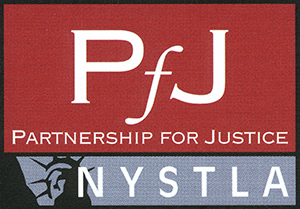Penalties for Drug-Related Crimes
Posted on September 14th, 2020 by Oddo & Babat, P.C.
Substance abuse can seep into many areas of a person’s life, affecting their personal relationships and professional work. You don’t just have to be a user to be affected by drug-related crimes. People who make, possess, sell, and transport illegal drugs can all be affected, and the repercussions can ripple throughout their entire lives. If you are accused of a drug-related crime, you’ll need to know how the legal system treats your specific crime and what the punishments may be.
Basic Penalties
Jail time is one of the most common penalties for drug-related crimes. In fact, the majority of people in prison are sentenced because of something involving drugs. In addition to going to jail, an offender may face large fines, community service, probation, and house arrest. Once a drug-related crime is on your record, it could impede you from obtaining jobs, owning a weapon, becoming a member of the military, receiving a loan, and even voting.
How Penalties Are Chosen
Not all penalties are applicable to every crime. The court takes several factors into account when deciding on punishments:
- What substance the person had in their possession
- How much of that substance the person carried
- What the person was doing at the time of arrest
- How often a person has encountered law enforcement
Criminals with a history of drug-related offenses are more likely to get steeper punishments because they have already gone through the system before. The more dangerous the drug, the greater the penalty as well.
Categories for Drugs
In law enforcement, drugs are split into different categories based on what they do to the body and the risk of what they can do. These categories are called schedules. Schedule I refers to the most hazardous drugs with no medical advantage, including heroin, LSD, and ecstasy. Schedule II is drugs with some medical advantages but high chances for abuse, such as cocaine and meth. Schedule III is medications that have a lower risk of dependency, like steroids and ketamine. Schedule IV is very low risk medications, such as Tramadol and Xanax. Finally, Schedule V is the lowest risk of them all, like cough medicine.
Selling and Possession of Drugs
Users are not the only ones who can be convicted of a drug crime. Those who sell, possess and smuggle drugs can result in major penalties. Selling and trafficking are considered worse than simple possession and can result in harsher punishments.
If you have been accused of a drug-related crime, contact a lawyer, like a drug lawyer from the Law Office of Daniel J. Wright, to see about your options. There may be state or federal laws you don’t know that can impact your case.


 I consulted with David the first time a couple of years ago on a serious matter that affected a very close member of my family. Not expecting a good experience from this serious situation coupled with an attorney consultation, the entire thing surprised me as it was pleasant, professional, and completely successful. We found him clear, direct, generous and extremely knowledgeable throughout the process. I give my very strongest recommendation
I consulted with David the first time a couple of years ago on a serious matter that affected a very close member of my family. Not expecting a good experience from this serious situation coupled with an attorney consultation, the entire thing surprised me as it was pleasant, professional, and completely successful. We found him clear, direct, generous and extremely knowledgeable throughout the process. I give my very strongest recommendation








